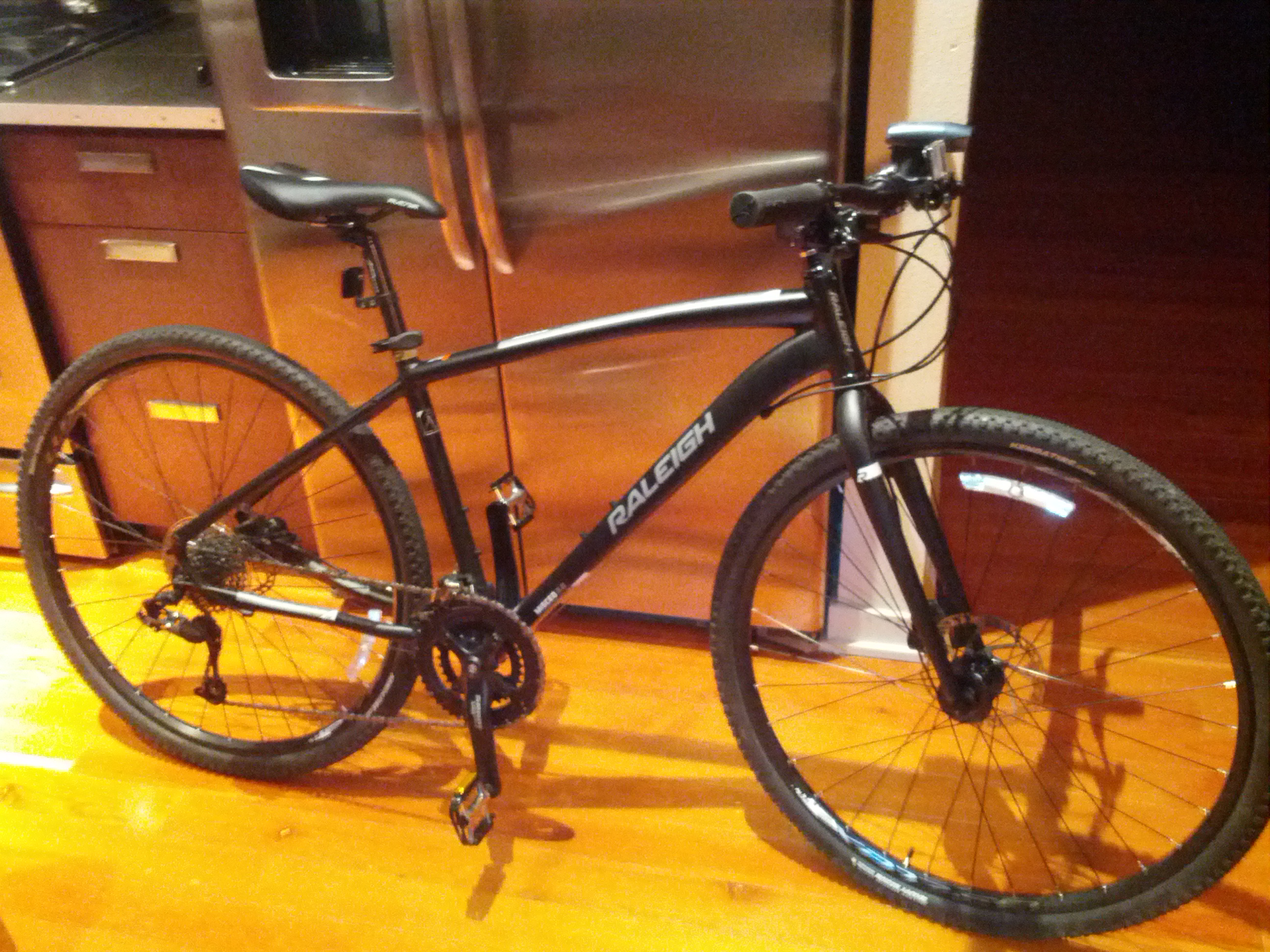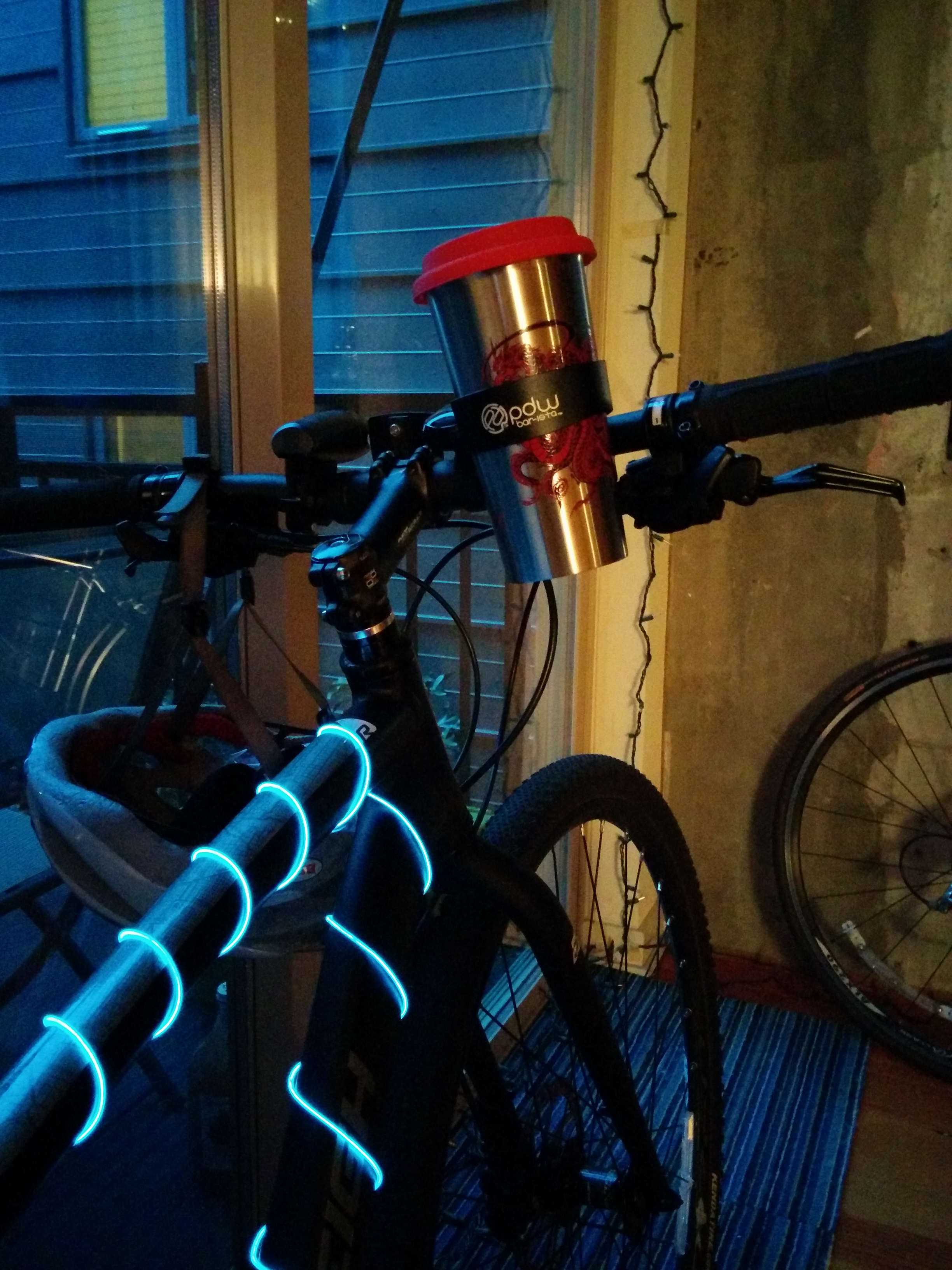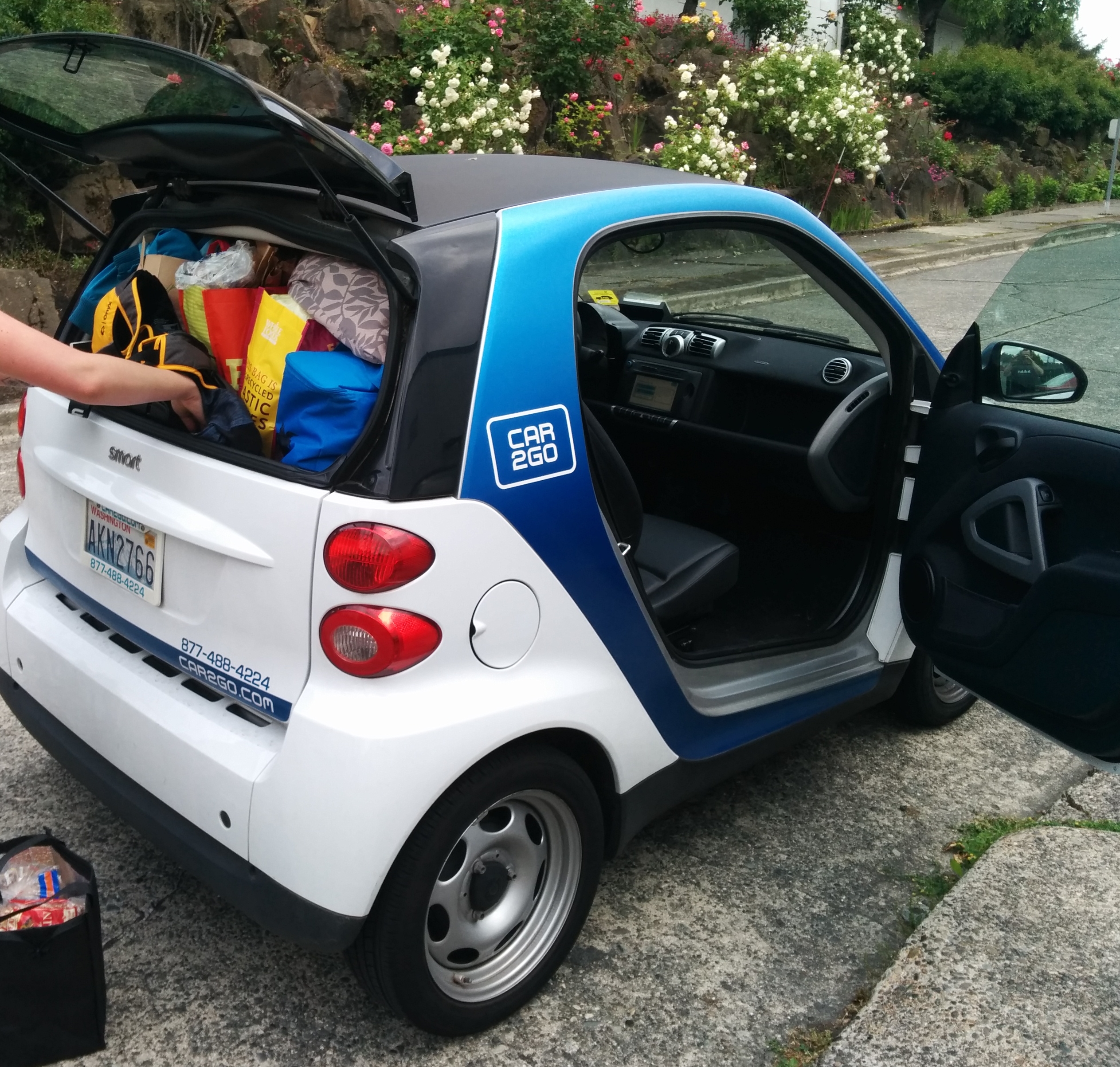The average American household owns 2 cars. We own no cars, but a boat. This is a more peculiar situation than you’d think – most boat owners also own at least one car.
A year ago, I sold my beloved Mazda RX-8 of 8 years, and converted to bike commuting plus car sharing (Car2Go, Uber, city bus). Natalie already had no car.
Part of this was inspired by Mr Money Mustache, one of my favorite bloggers. He encourages people to get out of their clown car habits and become rich by adopting a biking lifestyle.
A boat is extravagance enough – why have a car too if you live in a city that has decent public transit and excellent car sharing options? I decided having a boat warranted some self deprivation.
Many people want a sailboat to live the cruising lifestyle, but don’t know how they can afford it. Well, our boat cost about the same as an expensive car (like a BMW or Audi SUV), albeit with higher maintenance costs. Giving up a car is one of the best ways to be able to afford a boat.

To be able to bike commute you need a good sturdy bike – this is my Raleigh Misceo 3.0. It cost much less than a car.

Good lighting is important for safety, and of course, a coffee cup holder.
Before I sold my car, I computed a spreadsheet estimating how much it cost and how much it would cost me to rent cars instead (hint: it was cheaper to rent other people’s cars than own my own):
| Fixed Costs: | Annual Cost of Car |
| Insurance | $828 |
| Car depreciation | $2,380 |
| Maintenance | $321 |
| WA Licensing | $140 |
| Variable Costs: | |
| Gas | $696 |
| Total Car Cost: | $4,365 |
I should note certainly car costs could be cheaper. Car value depreciation would be lower by buying a used car or a cheaper car. But I do think these car costs are fairly typical of the average American family who tend to own at least one moderately expensive SUV or gas guzzler truck.
The above table was based on actual numbers from my car usage; the following one was just an estimate:
| Costs without Owning a Car: | Annual |
| Car2Go, 1 round-trip to work per week, $16 | $832 |
| Rental car for multi-day weekend trips, 3d x 2 x $35/day | $210 |
| Rental car for hiking trips, avg 10 x $30-80, say $45 avg | $450 |
| 4 ski days (Zipcar), 4 * $80 | $320 |
| Total Non-Car Cost: | $1,812 |
Not having a car is also a life hack that has surprising benefits. Not having a car means:
- Automatic exercise – from biking or walking.
- Taking yourself outside the flow of traffic (sometimes) – this is the big one for me. Sitting in an hour of standstill traffic to go 3 miles on a Friday evening is really soul crushing. If you can avoid being ruled by traffic, your life will be a lot happier. Biking or walking is the easiest way to step outside the flow of traffic.
- Recentering your life to a more local mindset – you might rediscover the local farmer’s market or restaurants right around the corner you had forgotten about while learning to be less car dependent.
- Fewer bills, greater savings – no insurance, gas, car repairs, parking costs.
- Simplification of your life – no need to worry about whether your car needs an oil change, washing, or tires replaced.
Transporting Boat Supplies
Owning a boat without a car presents some unique difficulties. Boats need weighty things brought to-and-from occasionally. I’ve biked over with bilge hose coiled around my neck (probably not the safest thing), backpacks loaded down with 30 pounds of gear, gallon containers of bleach, or bed sheets (after washing at home).
And let’s not forget beer! Beer is heavy, and you gotta get it to the boat. These loads certainly slow me down – but burn more calories too, making it a better workout!
Sometimes, there’s just too much to cart and you’ll have to rent a car or cab. But it helps to be really organized about staging things to and from the boat – have a boat pile at home so you can bring things a little at a time – if you bring a few things on each bike trip, maybe you won’t need that car trip as soon.

We can fit a lot of stuff in a tiny Car2Go when we’re packing for a trip
Transit Accessibility of Marinas
Picking a marina with better transit accessibility is probably the biggest thing you can do to make a car free life with a boat easier. Some marinas like Elliott Bay Marina and Shilshole have very poor public transit options. They’re in transportation dead zones. The bus routes simply don’t go near them, or drop you off at a random deserted bus stop in the middle of a bridge with speeding traffic and no crosswalks.
Marinas closer to central areas of the city (Fisherman’s Terminal, any marina on Lake Union) can save a lot of time in commuting back and forth to the boat by bike or bus. Or reduce your car sharing expenses. Although it is really nice to be able to bike down the marina dock (some of these docks are really long!), biking in cold, rainy winter weather can be tough, and for carting supplies you’ll want to be able to take the bus sometimes in order to reduce car2go or Uber expenses.
Car Sharing
I don’t think a car free life works well in all cities. It works best in a city with good car sharing options. Seattle (and similar cities like San Francisco, NYC, Portland) has had excellent car sharing options since about 2012. Car2Go plus Uber cover most of your needs, and rental car agencies (Enterprise, Hertz) fill in when you need a car to go somewhere for a full day (often surprisingly cheap – just $30-40).
In Conclusion
Going car free is a simple change, but most people can’t do it even if they agree with the idea in principle – they’re too deep into the mindset of a car owner. But maybe, just maybe, your car is actually doing you more harm than good – holding you back and tying you down.

Great post! I’m hoping to get a folding bike soon and transition away from being so reliant on my car
Great post, Patrick! Since you have a sailboat big enough for two people to live aboard, you should get rid of your land-based home and all of its contents. This would save even more than the car savings.
Bob
I agree with Bob. When we purchased an expensive used boat it became our home. Being fully committed simplified our life considerably.
Another well-written and thought provoking post Patrick! It makes me wonder about using a bike with the buses for the ‘public transit dead zones’ you mention near many of our marinas. Do you know: do all Metro buses have bike racks? Does Metro allow folding bikes on it’s buses?
Most buses have bike racks I believe, but I’ve never taken the step of using one – most of the time I feel like if I’m going to bike, I might as well bike all the way.
When I use the bus, it’s usually because I need to carry something that is too heavy to bike with. Or the weather is super nasty out. Bus + bike does make sense if you need to travel longer distances (like > 10 miles) though, and the drop off point isn’t within easy walking distance of your destination.
I believe a folding bike would be fine to carry on (folded up), or could just be put on the rack.
Back when I lived on the west coast (Bellingham), we would regularly go for a month without driving, just biking everywhere. I loved it. Bought an old worn out Burley kid trailer (the nylon was all shot, so it cost me $20) and converted it for cargo, which worked beautifully. The downside is that on at least two occasions that I remember, distracted drivers, with eyes tuned only to the mass of a car, nearly smeared me into the pavement.
One other upside that most people seem to forget, is that you’re much less likely to kill someone or something with your bike than with your car.
Out here in Michigan (now in a rural area, about 6 miles from nearest town) I have the option to take a horse & buggy or wagon. With Amish in the general vicinity, it seems a little less outlandish than it would somewhere like Seattle. There are downsides to that too, though: http://haymanfarm.blogspot.com/2017/10/doh.html